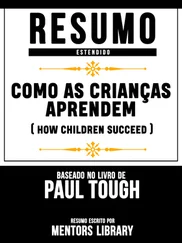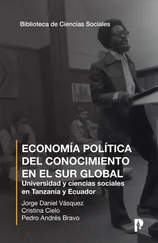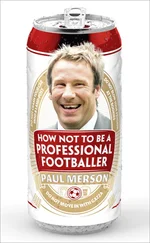What struck me most about Jobs’s speech, though, was the story he told about his greatest failure: being fired from Apple, the company he created, just after his thirtieth birthday. “What had been the focus of my entire adult life was gone, and it was devastating,” he said. “I was a very public failure.” What he wasn’t able to see at the time, Jobs said, but that became clear later was that the experience of such a dramatic failure allowed him to reorient himself and his work in a way that led to his greatest successes: buying and transforming Pixar, getting married, returning to Apple rejuvenated. As Jobs put it in his speech: “The heaviness of being successful was replaced by the lightness of being a beginner again, less sure about everything.” That was, I think, exactly what I was looking for in that Columbia dorm room: the lightness of being a beginner.
A month or so after writing my dropout letter, I did, indeed, drop out. I bought a bike and a tent and a Coleman stove and a one-way plane ticket to Atlanta, and from there I bicycled to Halifax, through many rainstorms, flat tires, and strange encounters. It took me two months, and at the end of the journey, I felt it was the best thing I’d ever done. I gave college another try a few months later, back in my native Canada—McGill University, in fact, where a decade or so later Michael Meaney would begin to discover such amazing things about rat mothers and their licking habits. And then three semesters after that, I dropped out again to take an internship at Harper’s Magazine. This time, the dropping-out stuck. I never went back to college, never got a BA, and, haltingly, I began a career as a magazine editor and a journalist. I didn’t go on to found Apple, or even NeXT (Jobs’s failed computer company), and in fact I continued for the next two decades to struggle with some of the same questions I had been wrestling with in that dorm room— Should I do something I’m good at or something I love? Take a chance or play it safe? —until on another fall morning, twenty-four years after dropping out of Columbia, I found myself dropping out of another esteemed New York City institution, the New York Times, again without much of a safety net. This time, the strange adventure I set out on was not to pedal a bicycle halfway across the country; it was to write a book. This one.
These days, when I contemplate success and failure, I think less frequently about my own prospects and more often about those of my son, Ellington. I figure I’ve already turned out more or less the way I’m going to turn out. But Ellington? Anything could happen. I started reporting this book right around the time he was born, and it will be published just after his third birthday, so the years I spent working on it coincided almost exactly with the period in his life that neuroscientists tell us is the most critical in a child’s development. The experience of writing the book—and especially encountering the brain research that I wrote about in chapter 1—has profoundly affected the way I think about what it means to be a parent.
When Ellington was born, I was like most anxious parents under the influence of the cognitive hypothesis, worried that he wasn’t going to succeed in life unless I broke out the brain-building flashcards and the Mozart CDs in the maternity ward and then kept bombarding him with them until he got a perfect score on his preschool- admission test. But the brain researchers whose work I had begun to read pointed me in a different direction. Yes, they said, those first few years are critically important in the development of a child’s brain. But the most significant skills he is acquiring during those years aren’t ones that can be taught with flashcards.
It is not as if I suddenly stopped caring about Ellington’s being able to read and write and add and subtract. But I became convinced that those particular skills would come to him sooner or later no matter what I did, simply because he was growing up surrounded by books and had two parents who liked to read and were comfortable with numbers. What I felt less confident about were his character skills.
Yes, it feels a little ridiculous to use the word character when you’re talking about a toddler. And yes, the development of an individual’s character depends on all sorts of mysterious interactions among culture and family and genes and free will and fate. But to me, the most profound discovery this new generation of neuroscientists has made is the powerful connection between infant brain chemistry and adult psychology. Lying deep beneath those noble, complex human qualities we call character, these scientists have found, is the mundane, mechanical interaction of specific chemicals in the brains and bodies of developing infants. Chemistry is not destiny, certainly. But these scientists have demonstrated that the most reliable way to produce an adult who is brave and curious and kind and prudent is to ensure that when he is an infant, his hypothalamic-pituitary-adrenal axis functions well. And how do you do that? It is not magic. First, as much as possible, you protect him from serious trauma and chronic stress; then, even more important, you provide him with a secure, nurturing relationship with at least one parent and ideally two. That’s not the whole secret of success, but it is a big, big part of it.
When Ellington was an infant, the research that influenced me most was Michael Meaney’s. It’s a little embarrassing to admit, but while I was playing with baby Ellington, I was often thinking about baby rats. I spent a lot of time, in fact, mulling over exactly what it might mean to be a high-licking-and-grooming human parent. Those high-LG dams, I realized, were not helicopter parents. They didn’t hover anxiously. They weren’t constantly licking and grooming their pups. They did their LG-ing mostly in one very specific situation: when their pups were stressed out. It was almost as if the dams were trying to teach their pups, through repetition, a valuable skill: how to manage their inflamed stress systems and restore them to a resting state. The equivalent skill for human infants, I think, is being able to calm down after a tantrum or a bad scare, and that’s what I concentrated on trying to help Ellington learn how to do. To be clear: I didn’t lick my son. I didn’t even really groom him much, to be honest. But if there is a human equivalent to high-LG parenting, it involves a lot of comforting and hugging and talking and reassuring. And my wife, Paula, and I both did a lot of that when Ellington was little. My guess is that doing those things with Ellington in his infancy will turn out to have made a bigger difference in his character, and in his ultimate happiness and success, than anything else we do.
As Ellington grew older, though, I found, as countless parents had found before me, that he needed something more than love and hugs. He also needed discipline, rules, limits; someone to say no. And what he needed more than anything was some child-size adversity, a chance to fall down and get back up on his own, without help. This was harder for Paula and me—it came less naturally to us than the hugging and comforting—and I know that it is just the beginning of the long struggle we will face, as all parents do, between our urge to provide everything for our child, to protect him from all harm, and our knowledge that if we really want him to succeed, we need to first let him fail. Or more precisely, we need to help him learn to manage failure. This idea—the importance of learning how to deal with and learn from your own failures—is a common thread in many of the chapters in this book. It’s what Elizabeth Spiegel, the chess coach, was such an expert at. She took it for granted that her students were going to fail a lot. Every chess player does. As she saw it, her job was not to prevent them from failing; it was to teach them how to learn from each failure, how to stare at their failures with unblinking honesty, how to confront exactly why they had messed up. If they could do that, she believed, they would do better next time. Just like Steve Jobs at Apple the second time around.
Читать дальше
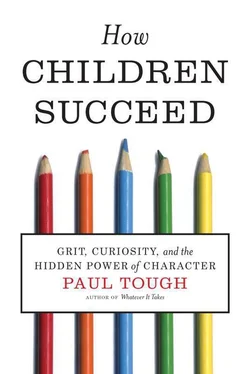

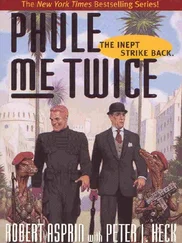
![Коринн МакКей - How to Succeed as a Freelance Translator [calibre 3.46.0]](/books/402693/korinn-makkej-how-to-succeed-as-a-freelance-transl-thumb.webp)


